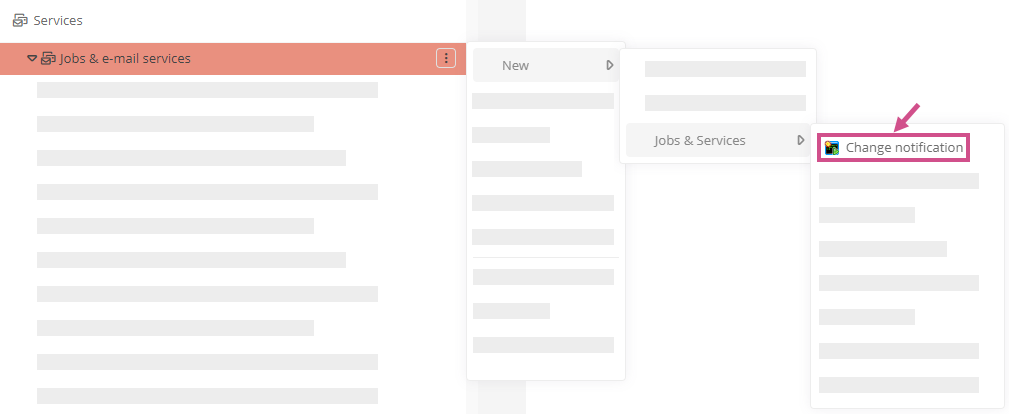Create and configure change notifications
You create change notifications in the SystemAdministration under the email service.
See also: How to configure the email service is described in Configure email service.
Instruction:
-
Create a new Change notification in the Services area under the Jobs & e-mail services entry using the context menu:

-
Assign a name
-
Configure the change notification in the Configuration property pane:
Property
Description
Trigger
Here you can select a trigger that controls when the change notification is sent.
Cron expression
Here you can enter a time pattern that controls when synchronization is performed automatically.
See also: Time pattern (Cron)
Group
This property is for internal use to bundle triggers and jobs and should not be changed!
Delegation
Here you can select to whom the change notification can be delegated. Here you have the following options:
-
Everyone
-
Writers
-
Owners
-
Admins
Allows registrations
If you enable the option, logged-in users can register for this change notification at model objects.
If the property is disabled, the Emails will be sent only to the users specified as Recipients in the attached email templates.
Disable children monitoring
If you enable this option, only objects without child objects can be observed. Thus, each object must be registered individually.
Object states
In the Object status area you can select a schema status of the object, at the occurrence of which the change notification will be sent.
Version status
Here you can select a schema status/state of the version of the object, at the occurrence of which the change notification will be sent.
Attributes
Here you can select attributes that will be considered for the change notification. A change notification for an object is then only sent if one of these attributes changes.
Email templates
Here you can select or create a template for the change notification.
See also: Velocity Variables in the email template
Successor job Here you can link jobs together. Once the execution of the job has been completed, the successor job referenced here is executed immediately.
Note: If the successor job is deactivated, it is skipped and the next active successor job in the chain is executed.
Note: Successor jobs do not require their own trigger or cron expression.
-
